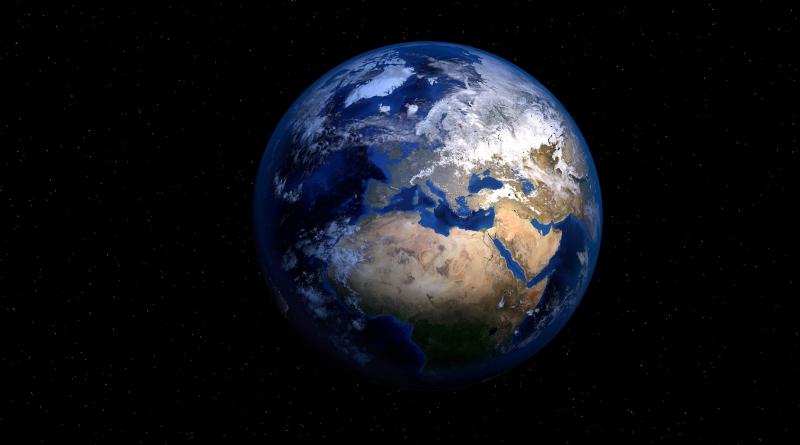The Renewable Rather than Roaring Twenties: A Sustainability Decade.

With the Trump Administration trying to drive science out of environmental decision making and climate change out of environmental impact statements, it is easy to be pessimistic about our ability to preserve our planet. Fires from Australia to California, droughts and floods and the devastating impact of extreme weatheronly serves to increase our sense of fear and foreboding. People willfully resisting the facts of a planet under stress are not only running our country but also leading Brazil, Australia and many others. Despite all of this, I remain optimistic and believe that over the next decade we will make visible progress in addressing a series of interconnected environmental problems ranging from climate change to the loss of biodiversity to the poisoning of our planet’s ecology.
I base my optimism on a paradigm shift or changed understanding of how the world works, that young people are now expressing throughout the world. The idea that the planet is comprised of inexhaustible resources that exist for human exploitation is fading away. Young people know the planet’s ecosystems are in crisis. Sure, the president and his pals think that the planet is big enough to handle the abuse, but that used to be the majority view and it is no longer the case. Among the most conservative Americans, young people uniformly express a deeper understanding of our environmental crisis than their elders.
This past November, Cary Funk and Meg Hefferon of the Pew Research Center observed that:
“There are significant divides between younger Republicans — Millennial and Gen Z adults, currently ages 18 to 38 — and their elders in the GOP on a range of environmental and energy issues. About a third (34%) of Millennial and Gen Z Republicans (including those who lean to the Republican Party) say human activity contributes to climate change a great deal, more than double the share of Republicans in the Baby Boomer or older generations who say the same (14%), according to a new Pew Research Center survey…. When it comes to views of energy sources, Millennial and Gen Z Republicans are less inclined than older generations in the GOP to support increased use of fossil fuel energy such as offshore drilling, coal mining and hydraulic fracturing. For example, 54% of Millennial and Gen Z Republicans support increased use of offshore drilling, compared with 76% of Republicans in the Baby Boomer and older generations.”
Pew’s global survey work demonstrates the growing understanding of the planet’s sustainability crisis. In a posting last spring, the center’s Moira Fagan and Christine Huang reported that “Majorities in most surveyed countries say global climate change is a major threat to their nation. In fact, it’s seen as the top threat in 13 of 26 surveyed countries, more than any other issue the survey asked about.”
The public opinion data is consistent across many polls and nations and it is a clear indication of changing views about the planet and its need for protection. The polling data provides empirical and analytic grounding, but for me, the shift is far deeper and is evidence of a change in our culture. It was once rare for people to think about their own behavior and its impact on the planet’s biosphere. Now it’s unusual when young people do not think about their carbon and environmental footprint. I’ve been at this long enough to be able to tell the difference between how it was before and how it is today.
I first began thinking about environmental policy and environmental protection when I wandered into Professor Lester Milbrath’s SUNY/Buffalo graduate seminar in environmental politics and policy in September 1975. When I took that course, environmental policy was a fringe issue and environmental protection was only an emerging function of government. The Environmental Protection Agency (EPA) was only five years old; the Federal Water Pollution Control Act was three years old; the Endangered Species Act was two years old and we had not yet begun to regulate solid waste, hazardous waste or toxic substances. Few of us connected our own behavior with the planet’s well-being. There were four billion people on the planet in 1975 and even though in 2020 we are closing in on twice that number, we were only starting to understand the full dimensions of the crisis of environmental sustainability. Back then a cutting-edge work was the Club of Rome’s, Limit to Growth. That book introduced many of us to the idea of the planet’s “carrying capacity” and the concept that the planet was not infinite and inexhaustible but quite finite and possibly close to exhaustion.
It had only been a few years since we had first seen the photos of the Earth from outer space and could see and conceptualize our small blue island, so precious and alone in the vast vacuum of space. The universe might be an endless frontier, but the Earth was not. We did not fully understand its limits, but we were starting to think about them. Decades later, we began to think that those limits might be expanded and controlled with new technologies and practices such as sustainability management, industrial ecology and the circular economy. With care and ingenuity, we could continue enjoying our lives, and avoid destroying the earth systems that nurtured us.
The difference today is the global consensus that human actions could be so vast that humans could change the course of our entire planet. This understanding has been a half-century in the making and its origins pre-date our knowledge of climate change. Rachel Carson analyzed the ability of DDT and other human-made poisons to travel though our biosphere and destroy life and worried that someday the absence of bird songs by a waterway would result in a “silent spring”. Barry Commoner’s Closing Circle reported on the transport of radioactivity from nuclear bomb tests in the Pacific Ocean to dairy farms in Wisconsin. Nuclear testing and DDT were banned, but thousands of other chemicals persisted as the chemical industry learned how to evade regulation. Today we release new technologies and chemicals into the environment and then when the impacts seem too large, we try to figure out a way to replace destructive technologies with less harmful ones.
We could do without DDT and we already knew that nuclear bombs could explode, so tests could end. But climate change is caused by our use of fossil fuels, which we use to generate energy. Energy use is a central and vital part of modern economic life. As we enter the third decade of the twenty-first century, we find ourselves faced with an environmental crisis of vast impact and importance. We have invested huge sums of money on the infrastructure that mines, transports and burns fossil fuels. The people who own those assets are determined to protect their value. But the massive environmental harm they cause is increasingly obvious. A piece of Australia as large as a European country is on fire. Over a million Californians live under similar threat. Extreme weather and wind and floods threaten many communities.
Fortunately, our species is ingenious, and capitalism has a way of rewarding those who create products that are better and less expensive than the ones they replace. Cars replaced horses, and when the batteries improve, electric cars will replace those powered by gasoline. Renewable energy will drive fossil fuels from the market when it is cheaper, more convenient and more reliable than fossil fuels. The transition away from fossil fuels has already begun. Renewable energy’s reduced impact on climate change will be a nice side benefit that will protect our food and water supply and our investment in the built environment we designed for our current climate system.
And I believe that the renewable rather than roaring twenties are upon us. The change is being driven by a cultural change in which people actively search for products that are less environmentally destructive. The young people who accept this new view of how the world works will include some gifted scientists and engineers who will apply their brainpower to harnessing solar power in its many forms and storing it for use when we need it. The next generation’s Bill Gates and Steve Jobs won’t be working on computing, but on energy. They are working on it now. It’s a long way from Rachel Carson’s Silent Spring in 1962, the EPA’s creation in 1970, Barry Commoner’s Closing Circle in 1971, Les Milbrath’s seminar in 1975, and even the creation of Columbia University’s Earth Institute in 1996, but I believe we are entering the decade when humankind will firmly pivot in the direction of sustainability. If I’m wrong, my poor powers of prediction will be the least of our problems in 2030.
6 January 2020
State of the Planet





